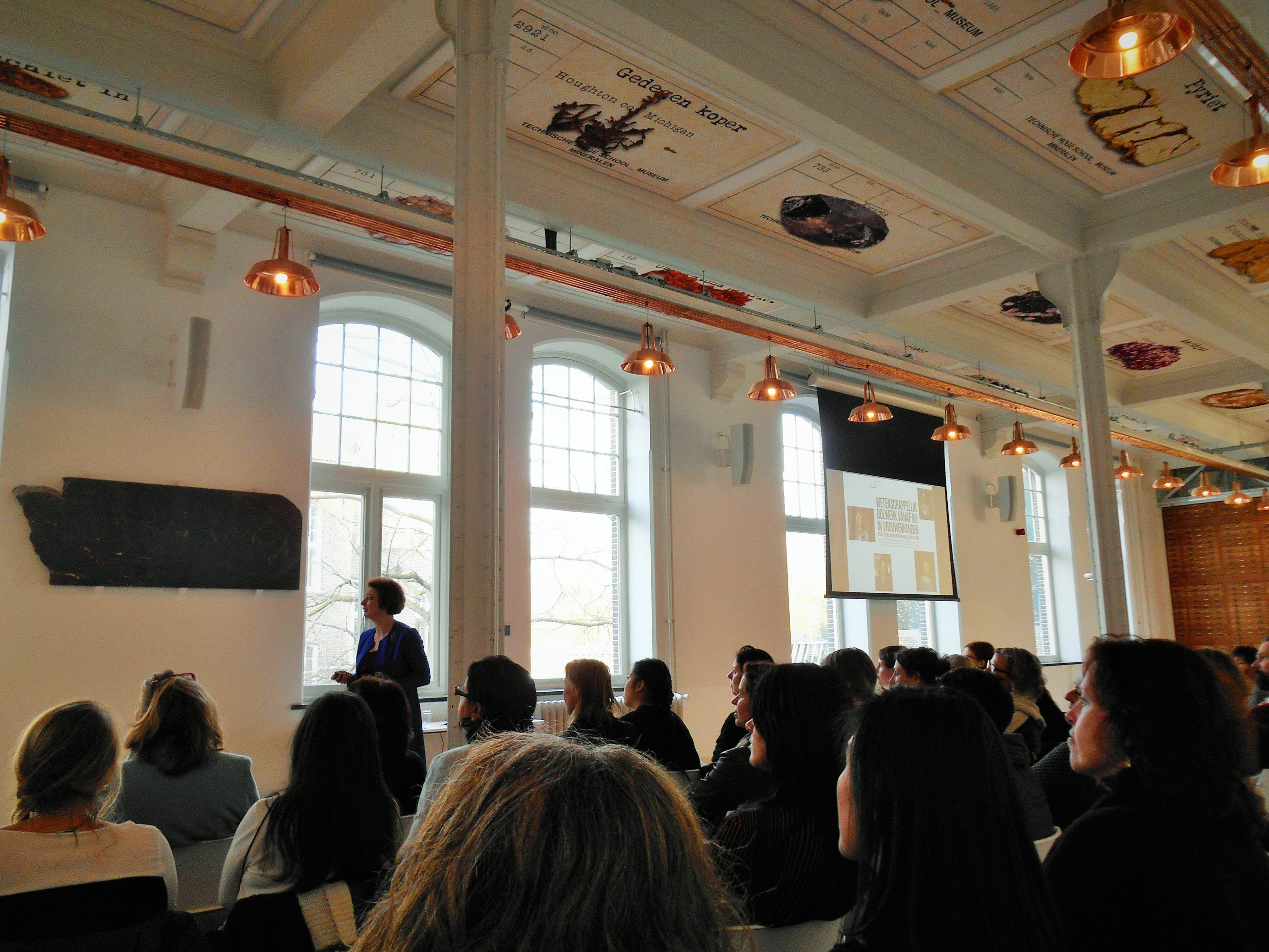There is a mix of laughter and collective groaning as DEWIS symposium attendees watch a recent video from an American university promoting National Sweater Day, which was quickly pulled for being extremely sexist.
The annual symposium focused this year on how gender can effect success and opportunity.
Titled ‘Gender, Power and Politics’ the event was held February 12, 2016 in the Delft Science Centre and was followed by the annual DEWIS awards. The opening video highlighted a number of problems addressed in a series of lectures during the day.
The first lecture was given by chemistry professor Paul Walton from the University of York. His talk titled ‘Gender Equality in Science’ highlighted that one of the big barriers for women in science is not ‘overt’ sexism, rather the implicit bias all people carry – gendered assumptions about women’s innate abilities and limitations. He presented a word frequency analysis of recommendation letters, showing while men may be referred to as ‘excellent’ or ‘genius’ women are more likely to be referred to as ‘dependable’ or ‘conscientious’, as such equally qualified candidates may not seem equally appealing.
The second lecture, ‘Only Quality Counts’, by social psychology professor Naomi Ellemers from Utrecht University also emphasised this unconscious bias. She spoke about how implicit associations mean women get treated differently. “Even scientists are not objective,” she said. Gendered comments and microaggressions also negatively affect women’s performance. Ellemers cited a study showing that women underperformed on intelligence tests after having their appearance and dress commented on. Implicit gender assumptions and microaggressions, among other problems, create what Ellemers called a cycle of motivation and performance loss. The importance is not only getting women into science, but keeping them there, a responsibility institutions must take on. Both speakers agreed that to do this, changing gendered language, having impartial observers in meetings and training people to recognise gender bias is a significant, and ensuring sufficient resource allocation for female researchers on maternity leave a necessary start.
The DEWIS awards were held after the symposium, the four candidates were female cum laude PhD recipients. Each woman presented her thesis with a comment about their experience as a women scientist. The prize was awarded to CiTG graduate Dr. Negar Khoshnevis Gargar for her thesis ‘Combustion for Enhanced Recovery of Light Oil at Medium Pressures’. Most candidates stated that while they never felt discriminated against while researching at TU Delft, in light of the symposium, this opinion may have been influenced by their own implicit bias.



Comments are closed.